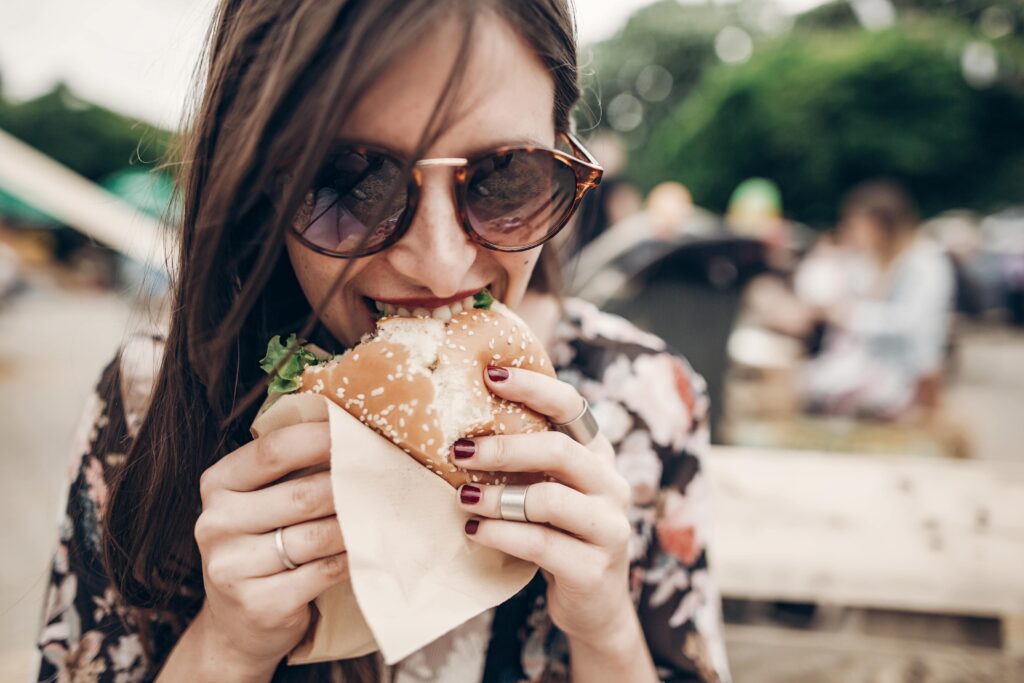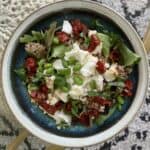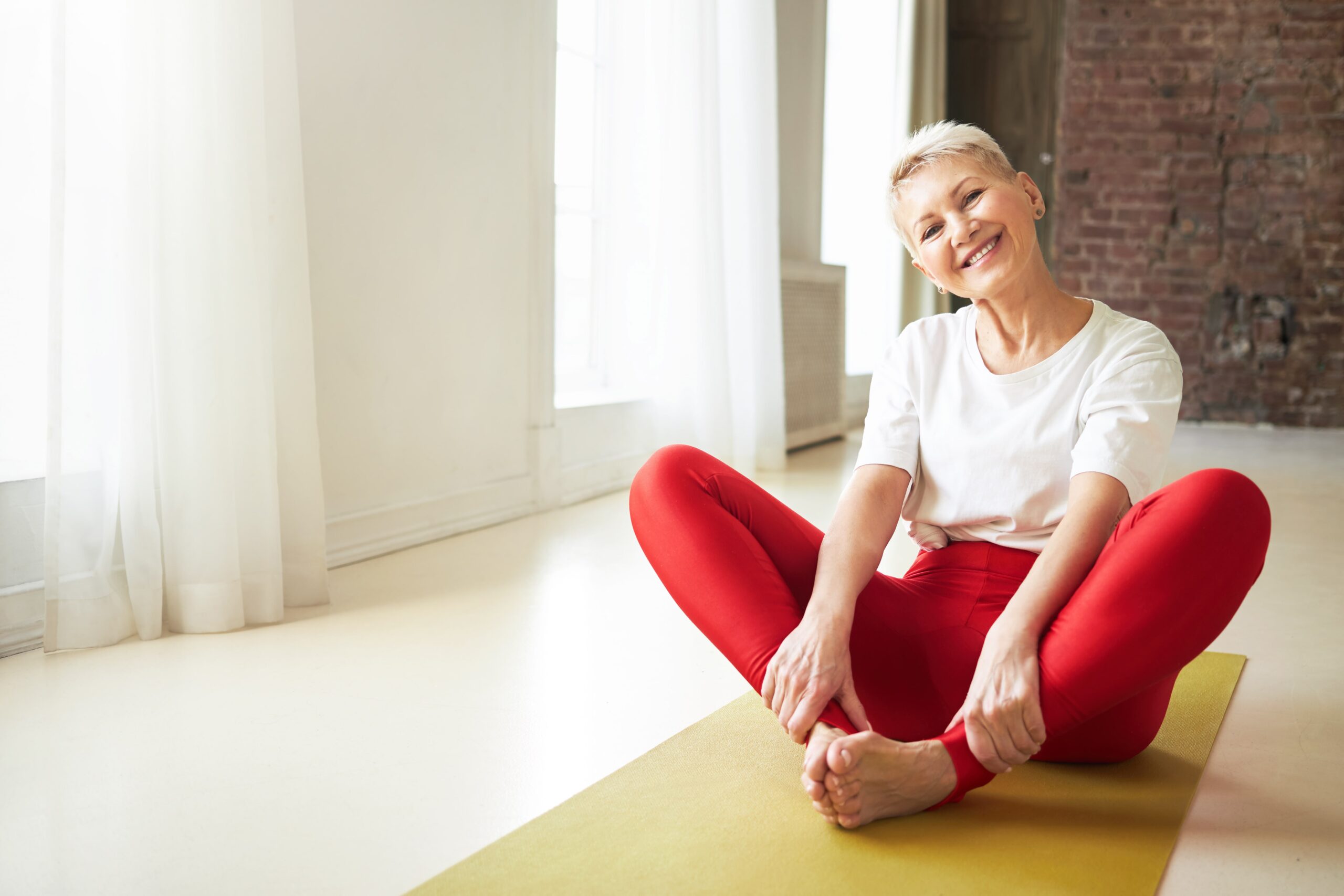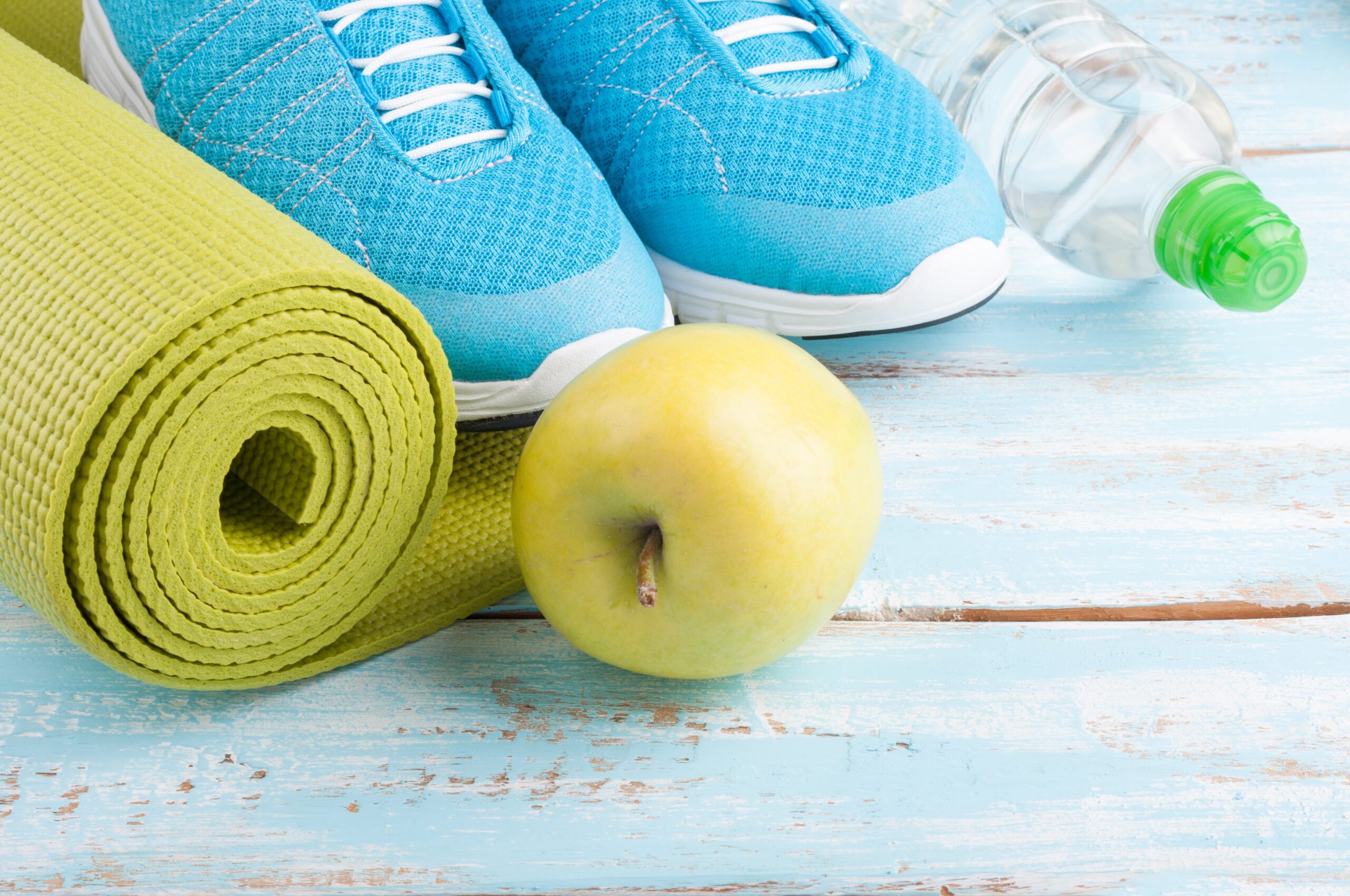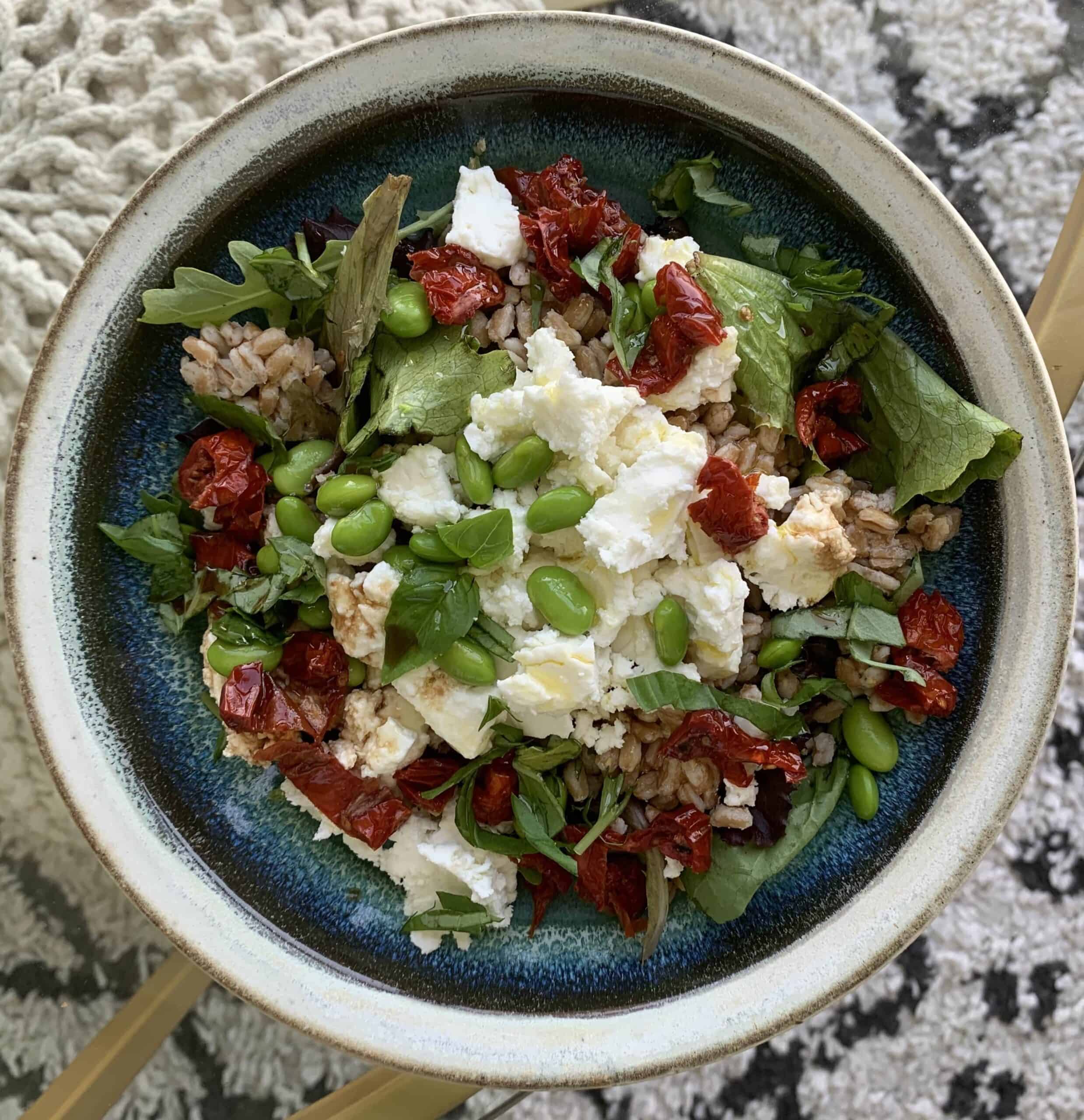Four steps you can take NOW to ditch diet culture and embrace food freedom
If you’re reading this, you probably have some vague idea of diets and diet culture by now. You may very well have been on a diet at some point, perhaps long ago or even last week.
Often diets can be carefully disguised as a ‘lifestyle change’ or ‘wellness program’ when in reality, diets are designed for a purpose – to be temporary, to most likely fail, and to leave us back to square one in search of another.
Diet culture affects our mood and creates a deadening of emotions. Dieting causes increased levels of hunger hormones such as ghrelin, even though our intention may be the opposite. (1) It impacts our behaviours and thought patterns when it comes to body image and disordered eating. (2) It impacts our perceptions of others, our stress levels, quality of life, and so much more. (3)
Diet culture is hidden in all areas of life – whether that’s media and magazines, office talk, and possibly the single leading cause of bodily insecurities and disordered eating. There are profound behavioural, physical, social and physiological implications of this social construct that often occur right under our noses – but gratefully, a lot of these symptoms can be prevented through education and awareness. (4)
Are you angry yet? Ready to ‘break up’ with diet culture and do lots of unlearning and peace-building along the way? In need of some steps you can do right now to set the record straight when it comes to food rules? Then, look no further and keep reading!
ONE: Unfollow all wellness-y, fitness gurus, clean eating, and simply unrealistic pages.
Social media is great because everyone can create and access it. Unfortunately, it is also not so great for the same reason. Be prepared to find a lot of misinformation, particularly on Instagram, and if a diet or remedy sounds too good to be true – it probably is. Research has shown that Instagram use can be linked to increased symptoms of orthorexia (5) and it’s sad to think using an application designed to connect us makes us feel more isolated and pressured than ever.
Red flags to be aware of on social media may look like: transformation pictures, exclusion of food groups, ‘what I eat in a day’ posts, inconsistent messaging, labelling foods as ‘good’ and ‘bad,’ diet supplements or weight loss programmes, or not being size-inclusive.
Be sure to follow trusted, registered dietitians and nutritionists who set a professional image as well as body liberation ambassadors and self-care gurus – find a shortlist of recommended accounts here.
Fill your feed with positive and uplifting messages rather than restriction and guilt-inducing ones. Over time, you will better identify facts from fiction and be free from nutrition nonsense.
TWO: Don’t feed the diet culture talk
Did a relative comment on your weight? Is the weekly office chat surrounding the topic of Karen attempting yet another juice cleanse? What are your thoughts on your best friend trying desperately to fit into a smaller wedding dress for their special day?
Whilst all of these scenarios are quite different and often may come from a place of good intent, it may be better for your wellbeing to ignore comments and remarks that make you or others feel worse about your bodies.
Nobody deserves to feel bad about the body that gives us our lives and enables us to enjoy and interact with the world each day. Life is short, and rather than desiring external validation, why not take some time to reflect and be grateful for all of what we are blessed with?
Check out our article all about how to respond to diet talk for some inspiration on navigating difficult conversations whilst standing your ground and inspiring thought-provoking change in others.
THREE: Be mindful of hidden messages and question the ‘norm.’
There’s a reason why media, advertising, clothing retail, and other brands prefer to use actors and models in smaller bodies. You guessed it – diet culture! Next time you notice this (and trust us, it’s EVERYWHERE), don’t be afraid to question the brands and speak up for more inclusive body types and their representation.
Once you open your eyes to it – maybe think about how this makes you feel. What would it be like for people, especially women of average size (which in the UK is size 16), to be represented more in the media? Would there be less pressure for people to look a certain way?
Perhaps you could explore journalling about how you might feel in a world (and a brain) ruled by diet culture vs one free from it. Would you feel happier and less anxious when it comes to mealtimes, exercise, and even dressing up? How would it feel to have that sense of body neutrality and liberation?
Taking some time to answer these questions from a place of curiosity can be quite a liberating activity, keeping you in tune with your feelings and pathway to food freedom.
FOUR: Free yourself from your FitBit, MyFitnessPal, and other ‘tracking’ apps.
Many people use activity and nutrition trackers and have a beneficial relationship with them – but if you are someone struggling with disordered eating, then your health trackers may not be serving you in the best way.
Diet culture often encourages us to under eat whilst overexercising, following fitness programmes designed for the many, rather than a more individualised routine attuned to our bodies and unique needs.
Often in the fitness world, you will hear the juggling around of phrases such as: ”Your body is a reflection of your lifestyle,” “The only bad workout is the one you didn’t do,” and “Take no days off,” when in reality, you are likely doing more harm than good adopting these frames of mind.
In truth, building a healthy movement routine means one that is sustainable, enjoyable and doable for you – there doesn’t need to be an end goal of weight loss, muscle gain, or even a change in clothes size.
Being active and moving your body, regardless of weight loss, provides so many tremendous benefits, including improved self-esteem, sex drive, sleep, mood and a reduction in stress, depression and anxiety-related symptoms.
Exercise in women with a positive body image also has been shown to improve enjoyment and overall health and they are more likely to have a healthy relationship with their body. (6)
You don’t have to bin your trackers for good, but you can always choose to hide or turn off certain features and use them as a part of a wholesome lifestyle when you feel in a comfortable place.
We hope that you enjoyed this article and, to conclude, are leaving you with a quote that strongly resonated with us:
‘In a society that profits from your self-doubt, liking yourself is a rebellious act.’
– Caroline Caldwell.
Take care, be a rebel, and keep up all of the admirable healing you are achieving on this empowering, enlightening journey to food freedom!
Priya Chotai, BSc ANutr
EHL Team x
References:
1. Cummings DE, Weigle DS, Frayo RS, Breen PA, Ma MK, Dellinger EP, Purnell JQ. Plasma ghrelin levels after diet-induced weight loss or gastric bypass surgery. N Engl J Med. 2002 May 23;346(21):1623-30. doi: 10.1056/NEJMoa012908. PMID: 12023994.
2. Stice E, Ng J, Shaw H. Risk factors and prodromal eating pathology. J Child Psychol Psychiatry. 2010 Apr;51(4):518-25. doi: 10.1111/j.1469-7610.2010.02212.x. Epub 2010 Jan 14. PMID: 20074299.
3. Dirks AJ, Leeuwenburgh C. Caloric restriction in humans: potential pitfalls and health concerns. Mech Ageing Dev. 2006 Jan;127(1):1-7. doi: 10.1016/j.mad.2005.09.001. Epub 2005 Oct 13. PMID: 16226298.
4. Matusek JA, Wendt SJ, Wiseman CV. Dissonance thin-ideal and didactic healthy behavior eating disorder prevention programs: results from a controlled trial. Int J Eat Disord. 2004 Dec;36(4):376-88. doi: 10.1002/eat.20059. PMID: 15558649.
5. Turner PG, Lefevre CE. Instagram use is linked to increased symptoms of orthorexia nervosa. Eat Weight Disord. 2017 Jun;22(2):277-284. doi: 10.1007/s40519-017-0364-2. Epub 2017 Mar 1. PMID: 28251592; PMCID: PMC5440477.
6. Wood-Barcalow N, Tylka T, Augustus-Horvath C. “But I Like My Body”: Positive body image characteristics and a holistic model for young-adult women. Body Image. 2010;7(2):106-116.

